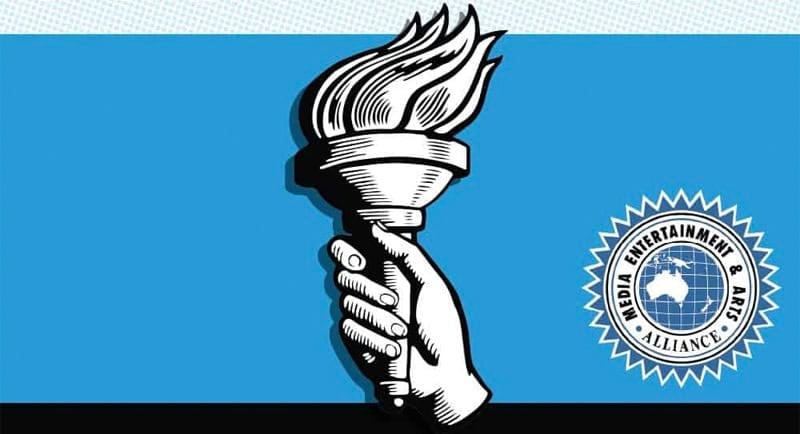Just a few hours after returning to work following a five-day strike, Nine journalists accepted an in principle enterprise bargaining agreement offer from management.
Journalists will receive a pay rise of 11.5% over three years, broken into 4%, 3.75%, and 3.75% lifts each year. This is an improvement on the rejected offer that triggered the strike action, which was reportedly 3.5% per year.
The offer also met key demands the union MEAA made, around the ethical use of artificial intelligence, a commitment to report on diversity in the workplace, and an agreement to negotiate for a fair deal for freelancers.
As part of Nine’s previously reported principles for AI use, the company is due to deliver a formal AI strategy in FY25.
See also: ‘We start and end with humans’: Nine reveals its principles for AI use
There has been no word on the union’s calls for CEO Mike Sneesby and his executive team to forego their bonuses this year and next year instead of cutting 70-90 jobs.
The acting Director of MEAA Media, Michelle Rae, said it was “disappointing” that it took journalists going on strike “to focus management on coming to the table with an improved offer.”
“This could have been avoided if Nine’s managers had listened to the concerns raised by union representatives over many meetings. Instead, the company’s earlier failure to resolve the enterprise bargaining agreement and its announcement of up to 90 job cuts has caused reputational damage to Nine.”
Posting on socials, technology editor at The Sydney Morning Herald and The Age, David Swan said “Strike over! A good outcome, and I’m proud of how we’ve stood together over the past few weeks.”
View this post on Instagram
The accepted offer will be subject to a formal vote before being submitted to the Fair Work Commission for approval.
In a release sent to media on Thursday, Nine said its Olympics coverage had seen a “substantial across-the-board rise in digital consumption” during the period between 24 July and 30 July. The five day strike began on 26 July, the day of the Opening Ceremony, and included Nine Publishing journalists on the ground in Paris.
Readers were asked to not buy the papers or click on digital stories to support the strike, and to write to Nine management to stress the importance of a deal. Freelancers were asked not to file to Nine newspapers for the duration of the strike, which ended at 11am yesterday.
Nine Publishing said it recorded 69.2 million page views during the 24-30 July period, while nine.com.au reportedly brought in 6.1 million page views.
A Nine spokesperson added: “We welcomed the MEAA’s decision today to resume negotiations, which supported a swift resolution of the outstanding issues. The new deal provides certainty for the business and our people as we continue to produce world-class journalism for our readers.”
